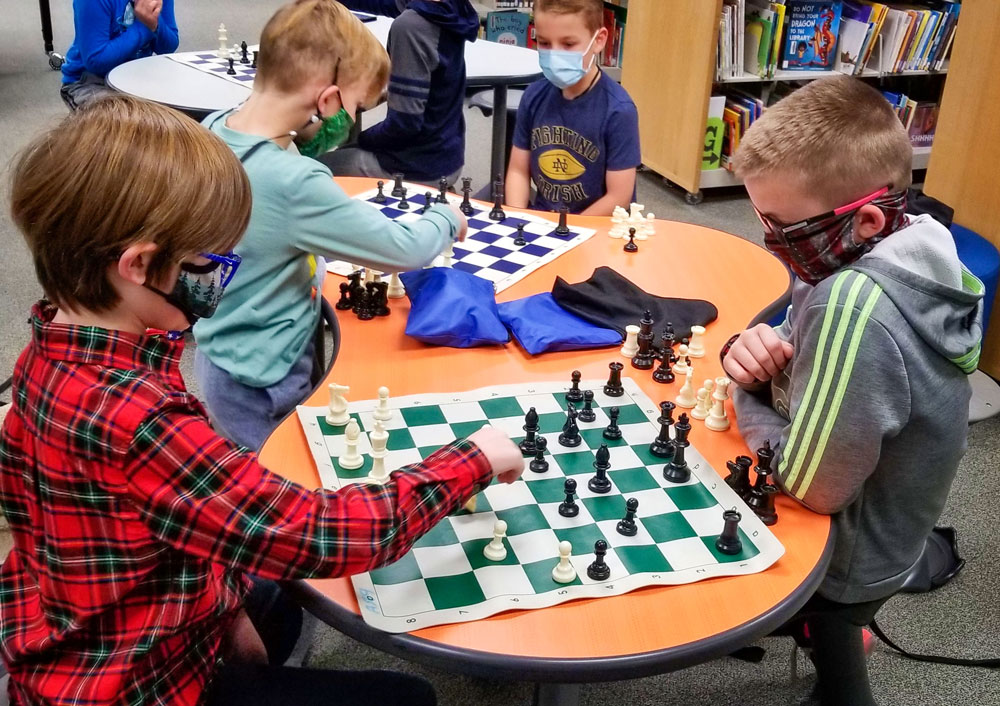Kids thrive through chess competition
By Steve Whitlock; photo courtesy of Lior Lapid

Timber Trail Elementary is one of a handful of Douglas County schools that participates in the PALS Chess Academy. “We are always happy to start new chess clubs with Douglas County schools,” said PALS Director Lior Lapid.
National Master Lior Lapid, the director of PALS (Play, Achieve, Learn, Succeed) Chess Academy, has a 25-year proven track record of teaching, coaching and mentoring chess students.
Lapid said, “We think of chess as an educational tool that has the power to enrich children’s lives both on and off the board. Each chess lesson is accompanied by a corresponding life lesson. Chess doesn’t ask what language players speak, what religion they follow, their political beliefs, their gender or sexual identity, whether players are rich or poor, young or old, whether they are people with disabilities or not. The game is accessible to everyone and transcends all borders and barriers. More than a board game, it is a fun meaningful experience that brings people together.”
When asked why he values chess, Lapid shared, “I learned chess when I was five years old. My mother taught me how to move the pieces and my father was my first training partner. Chess is an art and a sport and a science, a beautiful competition in which the learning never stops, and that is the main reason that I’ve remained fascinated by the game and will continue playing for the rest of my life.”
Regarding his own chess career he continued, “I still compete from time to time, though not nearly as much as I used to when I was a kid. As a teenager, I won the K-9 and K-12 national championships. More recently, I won the 2021 Colorado Open State Championship together with co-champion Rhett Langseth. Many PALS students compete in tournaments as well, and we run local scholastic K-8 tournaments for over 100 children every month.”
The 50 chess clubs Lapid oversees use curriculum he developed. He said, “PALS scholastic chess clubs begin with interactive lessons, as students are often divided into groups based on level and experience, followed by supervised game time during which kids play against each other and solve instructive chess puzzles.”
What’s rewarding about teaching chess? Lapid said, “As we get older, we sometimes begin to lose the magical sense of wonder that we had in spades as children. Two things reignite that spark for me – being around children (for whom life is often fun and fresh and exciting) and being around chess (in which every move of every game is an opportunity to learn something new). Like most teachers, I love the incredible moment when students’ eyes light up as they begin to understand a new strategy or tactic for the very first time. Their love of learning and positive energy is contagious, and in that sense my students are also my teachers.
With the recent Netflix hit series, The Queen’s Gambit, Lapid says there’s a new interest in the game. If someone wants to get involved in chess, he said, “I’d first recommend joining a local chess club and practicing online on a regular basis.”
According to Lapid, “It is essential to have a growth mindset when learning chess. Those who make excuses for their losses or stubbornly continue repeating the same mistakes will struggle to get to the next level, but those who transform their mistakes into questions and their losses into lessons will make vast improvement over time.”